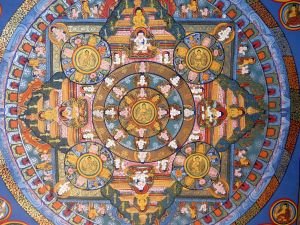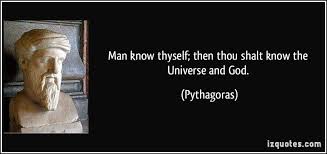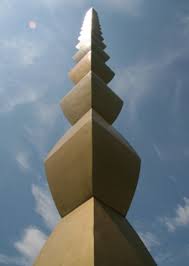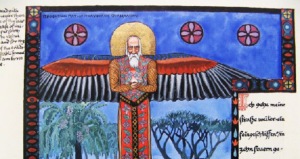Let’s say you have a great job that has been passioning you for a number of years, you have a great life, your husband/wife is as much in love with you as in the first month after you met, but there’s been a shadow lately that seems to take away the brightness off all these blessings, leaving your soul bare. Because you just realized that time is passing by, you are not getting any younger. But these are just the exterior things. You have inside a growing emptiness that, some strong inner voice is telling you, only one or two little children might fulfill. And your sister/cousin/friend, far from having all the comfort that you are currently enjoying, has already two gorgeous kids that are growing up under your very eyes and seem to bring their parents joys far greater than any job could ever provide. And then you feel quite a nostalgia… for someone you never knew before, a tiny being who, eventually, if coming into your life, will change you in ways never imagined. You just entered the powerful influence of the Mother/Father archetype.
Or, another story, another archetype: you tread the alleys of life in all ease and happiness, believing in your bright star and your right to independence, in your own power of self-expression and your right to enjoy life. The more you seem to praise your independence, the more those of the opposite sex seem to be attracted to you, and excuse is good if it helps you to stay free. And then, the unthinkable, the unbelievable happens: you’ve met that person for five minutes, but now, living even one hour faraway from him/her seems an eternity of loneliness and darkness… you have just fallen in the Love archetype.
Or the Transformation archetype…When this one takes over, it’s time for you to search for meaning, think deeper, ponder over the big life’s questions… over the Big Roles one must play in life…
If there is really nothing you can do but drop everything and follow these deep urges, you have just fallen under the compulsive influence of an archetype. There is intense discussion on how much we act upon rational decisions, and how much we are unconsciously motivated: when we fall in love, it is not a rational decision, but we act as if driven by an almighty force, a force that we cannot resist. When falling in love happens instantaneously, with a passionate, consuming and out of control emotion, it is because we have just activated an archetypal “program”. It is archetypal because it characterizes humans no matter the culture, social position, age, race, etc, and it is a program because, like with any digital device that functions in certain ways, we, too, behave at times as if “programmed”, outside of our control. In a less mechanistic view, an archetype is a universal pattern of behavior that motivates everything we do.
Archetypes (archein, meaning “original or old”; and typos, which means “pattern, model or type”, that is “original patterns”. The archetypal images of the Hero, the God and the Goddess are so ingrained within us since primordial times that mankind has elevated them to cosmic proportions, identified them with celestial bodies – they are now part of World’s mythologies.

The Father, Mother, Lover, the Trickster, etc, are also archetypal, “primordial images” according to Jung; the Self (the archetype of wholeness or of the self), the Anima/Animus (the part of the soul characterizing the opposite gender: a man will look for his feminine part of the soul in every woman he encounters, and similarly the woman, for her masculine part), the Spirit, the Shadow – that bad vs good duality in conflict also within ourselves; the Self: our strive for wholeness, or for oneness, that we represent or find in a Mandala.

Mandala, as a circle, is the symbol of completeness and perfection of the being, an expression for heaven, sun, and God; it has, since ever, expressed the primordial image of man and of the soul.
In ways not unacknowledged by today science (subliminal perception existed way before modern advertising, politics and so on, started to use science’s discoveries), symbolic images affect us at levels below the threshold of consciousness. Just by contemplating it as a spiritual exercise, a mandala takes us through a complete journey towards finding the Center, the “navel” of our personality, as our ancestors used to see it – it has a healing role, guiding, helping one settle and find own grounding. During such exercise, images talk to the soul before talking to the mind. Christianity has discovered these same fundamental realities in the three-dimensional representation of the mandala, the cross. This has in time acquired the highest possible moral and religious significance for Western man.
But these symbols are universal; any quaternity – the four cardinal directions , or four corners of the world, the four seasons, the ancient Greek classic four elements : Earth, Water, Air and Fire (like in Tibetan Mandalas), Buddha’s Four Noble Truths, the Four Gospels, the Four Rivers in the Garden of Eden, the Four Vedas of Hinduism, the Four Archangels of Islam, etc., is intended to cover any aspect in its wholeness and be complete.
But what is the need to feel complete, or what is the meaning of that? Jung has introduced us to the Archetype of Wholeness, or Archetype of the Self : the psyche’s need to achieve the totality of its conscious and of its unconscious components. According to Jung, when one realizes, knows and accepts the totality of his personality with his goods and his bads, his Conscious and his Shadow, he will have achieved the totality of the self – he will have attained the Center. As ultimate goal, self-fulfillment is an universal instinct, called by Jung individuation; according to our capacity for flexibility and non-resistance, all our experiences, good and bad, pleasant or unpleasant, serve to take us there, sooner or later.
 Jung could be just the new voice added to the chorus, as the most familiar aphorism to have traveled along times and cultures, since the oldest antiquity to our days, must be probably “know thyself”. It has been taught, written, shouted, advised, sang, cast in metal and chiseled in stone, from the Greek “gnothy seauton” (“know thyself”) inscription written in stone in the forecourt of Apollo’s temple in Delphi, to Socrates, to Plato, to Brias of Priene, Heraclitus, Thales of Miletus, Pythagoras, to more recent days Thomas Hobbes, Alexander Pope, Samuel Coleridge, etc., in all languages and all cultures; it is the motto of Hamilton College and of a few other educational institutions around the world – this just to wash away the New-Age-ish coating that many apply to it in dismissive ways. No matter the interpretations that many have thought appropriate to express, Pythagoras speaks with most clarity: “Man, know thyself;then thou shalt know the Universe and God.”
Jung could be just the new voice added to the chorus, as the most familiar aphorism to have traveled along times and cultures, since the oldest antiquity to our days, must be probably “know thyself”. It has been taught, written, shouted, advised, sang, cast in metal and chiseled in stone, from the Greek “gnothy seauton” (“know thyself”) inscription written in stone in the forecourt of Apollo’s temple in Delphi, to Socrates, to Plato, to Brias of Priene, Heraclitus, Thales of Miletus, Pythagoras, to more recent days Thomas Hobbes, Alexander Pope, Samuel Coleridge, etc., in all languages and all cultures; it is the motto of Hamilton College and of a few other educational institutions around the world – this just to wash away the New-Age-ish coating that many apply to it in dismissive ways. No matter the interpretations that many have thought appropriate to express, Pythagoras speaks with most clarity: “Man, know thyself;then thou shalt know the Universe and God.”

Other archetypal images refer to the axis, like the World Tree, or Axis Mundi – the axis that links the Heavens to the Earth, and relates Man to the God primordial image: The Creator up there made us down here to serve and elevate Creation. Some native peoples name him/her The Wise Old Man/Woman.

Having grown up with holy images each of us in our respective cultures, we have consciously and unconsciously been absorbing their substance; their meaning has become part of us and they are now our models of growth and evolution. So much so that, at times (too many times, in fact) they talk to us so loudly that they deafen or blind us to the only reality: that they are universal. God, in any language around the world, is equally holy, unique, awesome, tremendous, as we are equally human, mortal, imperfect, striving and questioning.
Archetypal images fascinate me more than anything since I had to realize that, if I seemed sometimes unreasonable and obsessed with one or other issue in my life, it wasn’t me – I can, in all honesty, blame it on the Archetype in action at that time. Nobody can resist or oppose the irrepressible power archetypes have on us, and everybody should be well aware of the key role they play in our lives – this could spare us many conflicts.
Do you relate a phase of your life to any of these archetypal energies? Initially I started writing this after pondering for a long time over the action of the many archetypes in my life. Then I just realized that no more had any of them such an effect on me as at the “peak of the action” – nothing seems to matter to me as much as it used to at given times in my life. Having thought of all that, of all those memories, I could give a sigh of relief, together with asking God, or any divinity that might hear my prayer: no more of that, pray, I have had already enough.
But then, I heard a laughter: “Hold on, not so fast!”. The divine voice (or it was a Muse, which I highly hope), wanted me to think of how long, and how stubbornly I have been clinging on to my latest madness (it only began like 13-14 years ago). How self-absorbed, lost to the world, obsessed, selfish, burned with desire, haunted by ideas waiting for, asking to be written have I been? The inner voice, not wanting anymore to leave me in my darkness, clarified it earnestly to me: I have been “possessed” by the Writer Archetype. And I have a feeling that I may not be the only one around, since we all seem to have been pondering and weighing the perspective of starting writing, on a blog, at least??
For some of us, the urge for writing is quite an irresistible need, and one may try and oppose the idea of exposing oneself and going public for as long as he wants (here read: “fight … as long as I want” – because it is myself that I am trying to write about), but, fight as he may, here he will end, eventually – we are all already on the stage here, already under the spotlight.
I wouldn’t have considered my urge to writing an archetype, but I subscribe to Mark Nepo’s idea about the need to be authentic and true to oneself, no matter what. Here are some quotes from his inspired and inspiring book: The Exquisite Risk: Daring to Live an Authentic Life:
–“…the need to express who we are is archetypal; that is both necessary and timeless. And expressing who we are is less about describing ourselves than it is about letting who we are out in a regular rhythm that is an imperative as breathing.”
“It is this exchange or flow of who we are- in and out- that keeps us connected to all that is living. ‘Ultimately, expressing who we are has a physics all of its own. More than being understood, it is about not hiding our basic nature.'”
“Essentially, the life of expression is the ongoing journey of how we heal each other… for by telling our stories and listening to the stories of others, we let out who we are and find ourselves in each other, and find that we are more together than alone.” From Mark Nepo, The Exquisite Risk: Daring to Live an Authentic Life”

Literature definitions for archetype:
- Archetype is a repeated pattern of character, image, or event, which recurs in story, song, myth and art
- In literature, an archetype is a typical character, an action or a situation that seems to represent such universal patterns of human nature.
But maybe I am just imagining things, maybe others would not agree with me on the Writer Archetype? Or on any other, as a matter of fact??


Great blog I enjooyed reading
LikeLike
Very true what you quickly commented on about humans and patterns. That writer archetype is definitely true in its existence. I definitely fall into that position myself. That explains why I have decided to start blogging in the first place.For you, I do hope that you will delve deeper. I quite enjoy your posts Cosmic 🙂
LikeLike
Thank you – I am happy to know that my work brings a little something to people 🙂
LikeLiked by 1 person
I would say a little more than that. Well, at least for me. 😉
LikeLiked by 1 person